Best Practices Articles

Top Affiliate Marketing Software: Expand Your Reach and Save Costs
Introduction
Affiliate marketing software is essential for businesses leveraging independent affiliates to promote their products or services. With the increasing popularity of affiliate marketing, software solutions have emerged to help companies manage and optimize their affiliate campaigns effectively. However, with so many software solutions available in the market, it can be overwhelming for businesses to choose the right platform that aligns with their needs and objectives.
To help businesses make informed decisions, we have compiled a list of the top affiliate marketing software solutions available. Each platform offers a range of features and functionalities that can help businesses streamline their affiliate marketing operations, track and analyze affiliate performance, and optimize their marketing strategy to drive better results.
This article provides an overview of each software product‘s features, pros, and cons to help businesses evaluate and compare different options. Additionally, we discuss factors companies should consider when selecting affiliate marketing software, such as ease of use, scalability, integration capabilities, customization options, and reporting functionalities.
By choosing the right affiliate marketing software, businesses can benefit from various advantages, including reduced marketing costs, increased brand awareness, expanded audience reach, and improved return on investment. However, selecting the wrong software solution can be detrimental to a business’s affiliate marketing strategy, leading to wasted resources, decreased performance, and, ultimately, a negative impact on revenue.
With this guide, businesses can choose the affiliate marketing software that meets their needs and objectives. By leveraging the right software solution, companies can streamline their affiliate marketing operations, optimize their strategy, and achieve their marketing goals.
What Is Affiliate Marketing?
The affiliate marketing model typically involves the merchant (or advertiser), the affiliate, and the consumer. The merchant is the business that offers products or services for sale, while the affiliate is an independent party that promotes the merchant’s offerings to their audience or network. The consumer is the individual who ultimately makes a purchase from the merchant‘s website through the affiliate’s referral link.
Affiliate marketing can take various forms, such as:
- Pay-per-click (PPC): Affiliates are paid for each click on their referral link that leads to the merchant’s website.
- Pay-per-lead (PPL): Affiliates are paid for each lead they generate, such as a user filling out a form or signing up for a trial.
- Pay-per-sale (PPS): Affiliates are paid a commission for each sale they drive to the merchant’s website.
Affiliate marketing is beneficial for both merchants and affiliates. Merchants can leverage the affiliate’s audience or network to reach a wider audience and increase sales. Meanwhile, affiliates can earn a commission for promoting products or services they believe in without worrying about inventory, shipping, or customer service.
Advantages of Affiliate Marketing
Affiliate marketing offers several advantages for businesses looking to expand their reach and drive more sales:
- Increased Reach and Exposure: Partnering with affiliates can help businesses reach new audiences and expand their reach. Affiliates often have a dedicated following or network of customers who trust their recommendations, which can help to increase brand awareness and exposure.
- Cost-effective Marketing: Affiliate marketing is a cost-effective marketing strategy, as businesses only pay affiliates for successful conversions. This means there is no upfront cost for promoting products or services; companies only pay for results.
- Improved ROI: Because affiliates are only paid for successful conversions, businesses can achieve a high return on investment (ROI) with affiliate marketing. This is especially true for companies with a high-profit margin, as even a slight increase in sales can lead to a significant ROI.
- Diversification of Marketing Channels: Affiliate marketing allows businesses to diversify their marketing channels and reach new audiences they may not be able to access through their marketing efforts.
- Low Risk: Affiliate marketing is a low-risk marketing strategy, as businesses only pay for successful conversions. This means there is no risk of spending money on marketing campaigns that don‘t generate results.
Disadvantages of Affiliate Marketing
While affiliate marketing offers many advantages, there are also some potential drawbacks that businesses should be aware of:
- Limited Control: Because affiliates are independent parties, businesses have limited control over how affiliates promote their products or services. This means that the quality and tone of the promotion may not always align with the brand‘s messaging or values.
- Competition for Affiliates: As affiliate marketing becomes more popular, businesses may face competition for affiliates from other brands. This can make recruiting high-quality affiliates willing to promote their products or services more challenging.
- Dependence on Affiliates: Because affiliates drive traffic and sales, businesses may become overly dependent on them for revenue. This can make it difficult to scale or diversify marketing efforts in the long term.
- Risk of Fraudulent Activity: Affiliate marketing is vulnerable to fraudulent activity like click fraud or cookie stuffing. This can lead to inflated conversion rates and wasted marketing spending.
Affiliate marketing is a performance-based marketing strategy that offers several advantages for businesses looking to expand their reach and drive more sales. By partnering with independent affiliates, companies can reach new audiences and diversify their marketing channels while only paying for successful conversions. However, it is also essential to be aware of the potential drawbacks of affiliate marketing.
How Affiliate Marketing Software Helps Brands
Affiliate marketing software streamlines the entire process of managing, tracking, and optimizing affiliate marketing campaigns. It provides a centralized platform for both brands and affiliates to collaborate effectively. Let’s delve deeper into the various ways affiliate marketing software benefits a brand:
- Extended Reach: One of the most significant advantages of affiliate marketing software is extending your brand‘s reach. Affiliates possess their unique audience, enabling you to tap into new market segments and customer demographics. By partnering with a diverse group of affiliates, you can maximize your brand’s exposure and attract potential customers who might not have discovered your products or services.
- Lower Marketing Costs: Affiliate marketing software reduces your overall marketing costs by leveraging the efforts of independent affiliates. Instead of investing heavily in direct marketing initiatives, your brand can focus on providing quality products and services while affiliates promote your offerings. Since affiliates are paid based on performance, you only incur costs when they generate successful conversions. This pay-for-performance model ensures your marketing budget is spent efficiently and delivers a higher ROI.
Network Effect: The network effect is a phenomenon in which the value of a product or service increases as more people use it. In affiliate marketing, this means that as your network of affiliates grows, your brand’s reach and influence expand exponentially. Affiliates often collaborate and share best practices, which can lead to even more effective promotional strategies. This network effect boosts your brand’s visibility and enhances the credibility of your products or services.
Top Affiliate Marketing Software Solutions
To help you choose the best affiliate marketing software for your business, we have compiled a list of top platforms that offer robust features and functionalities. These tools can help you manage and optimize your affiliate marketing efforts seamlessly.
Affiliate marketing software can help businesses expand their audience reach, boost brand awareness, and improve their return on investment (ROI). In this section, we introduce each provider in detail and list their pros and cons.
- Post Affiliate Pro is a powerful affiliate marketing software that offers customizable commission structures and real-time reporting. Its intuitive interface and user-friendly design make it easy to navigate.
Pros include:
- User-friendly interface
- Customizable features
- Real-time tracking
- Various pricing plans
Cons may include the high cost for small businesses and limited integration options.
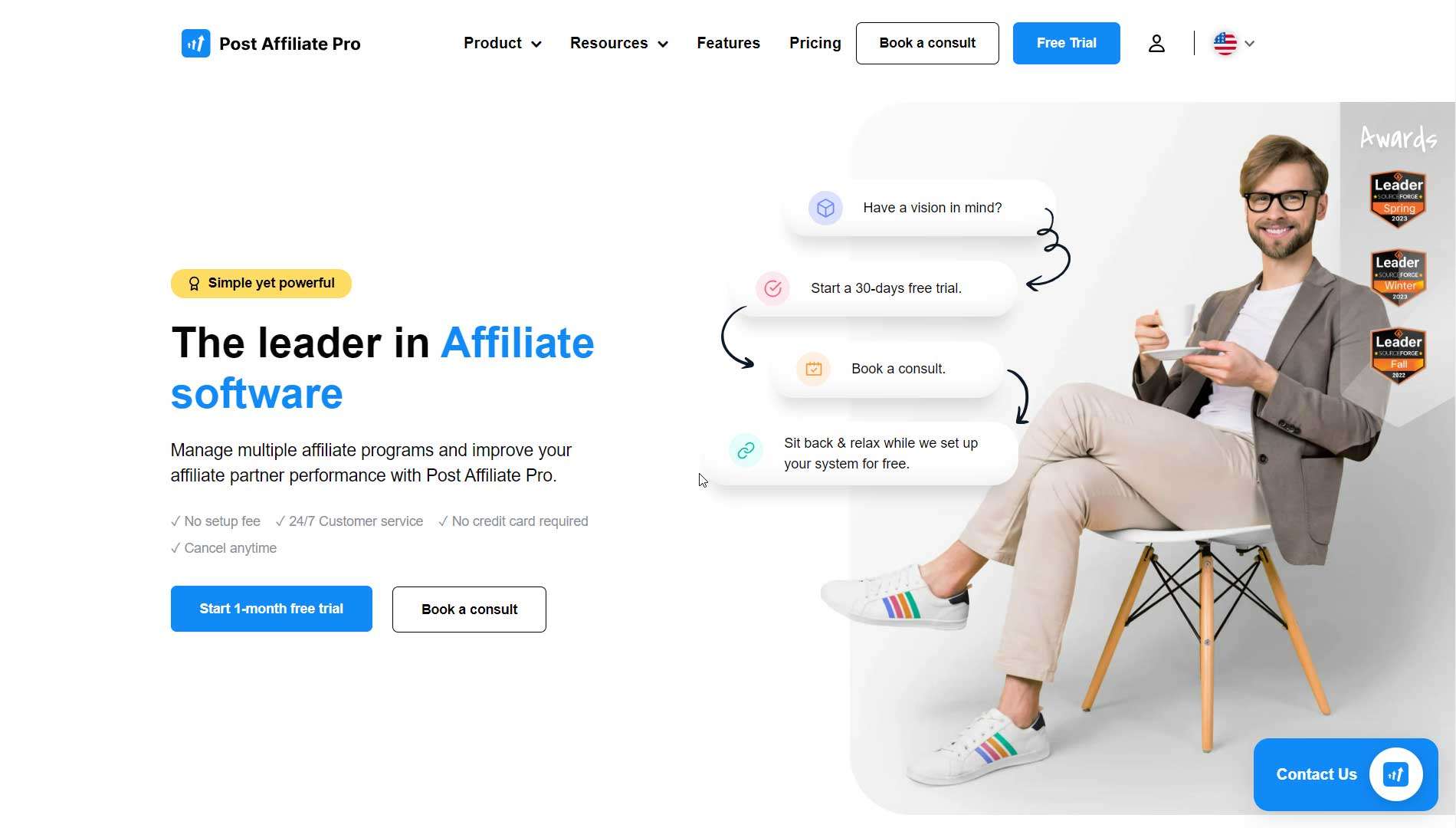
- ZINFI Technologies is a comprehensive affiliate marketing solution that offers advanced tracking capabilities and extensive reporting features. Its flexibility and customization options make it an ideal choice for businesses of all sizes.
Pros include:
- Customizable commission structures
- Flexible pricing plans
- Affiliate management tools
- Extensive integrations
Cons may include complexity and limited integration options.
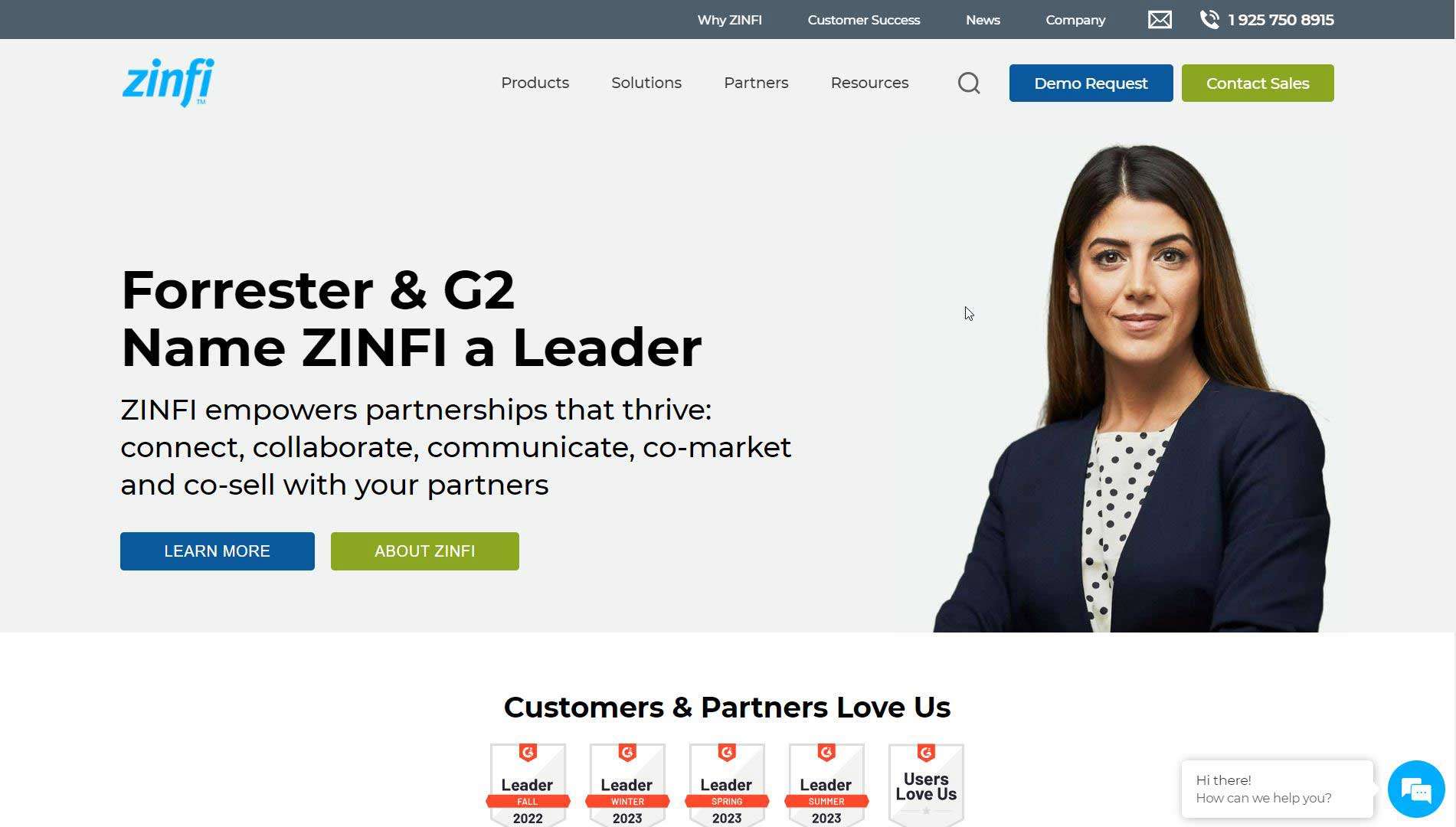
- Impact Radius is an advanced affiliate marketing platform that offers comprehensive analytics and data-driven insights. Its real-time reporting and customization options make it a top choice for businesses.
Pros include:
- Comprehensive analytics
- Real-time reporting
- Customization options
Cons may include high costs and limited customization options for certain features.

- ReferralCandy is an easy-to-use affiliate marketing software platform for eCommerce businesses. Automated rewards and detailed analytics help incentivize customers to promote your brand and drive sales.
Pros include:
- Automated rewards
- Detailed analytics
- Easy-to-use platform
Cons may include limited customization options for specific features and their suitability for eCommerce only.
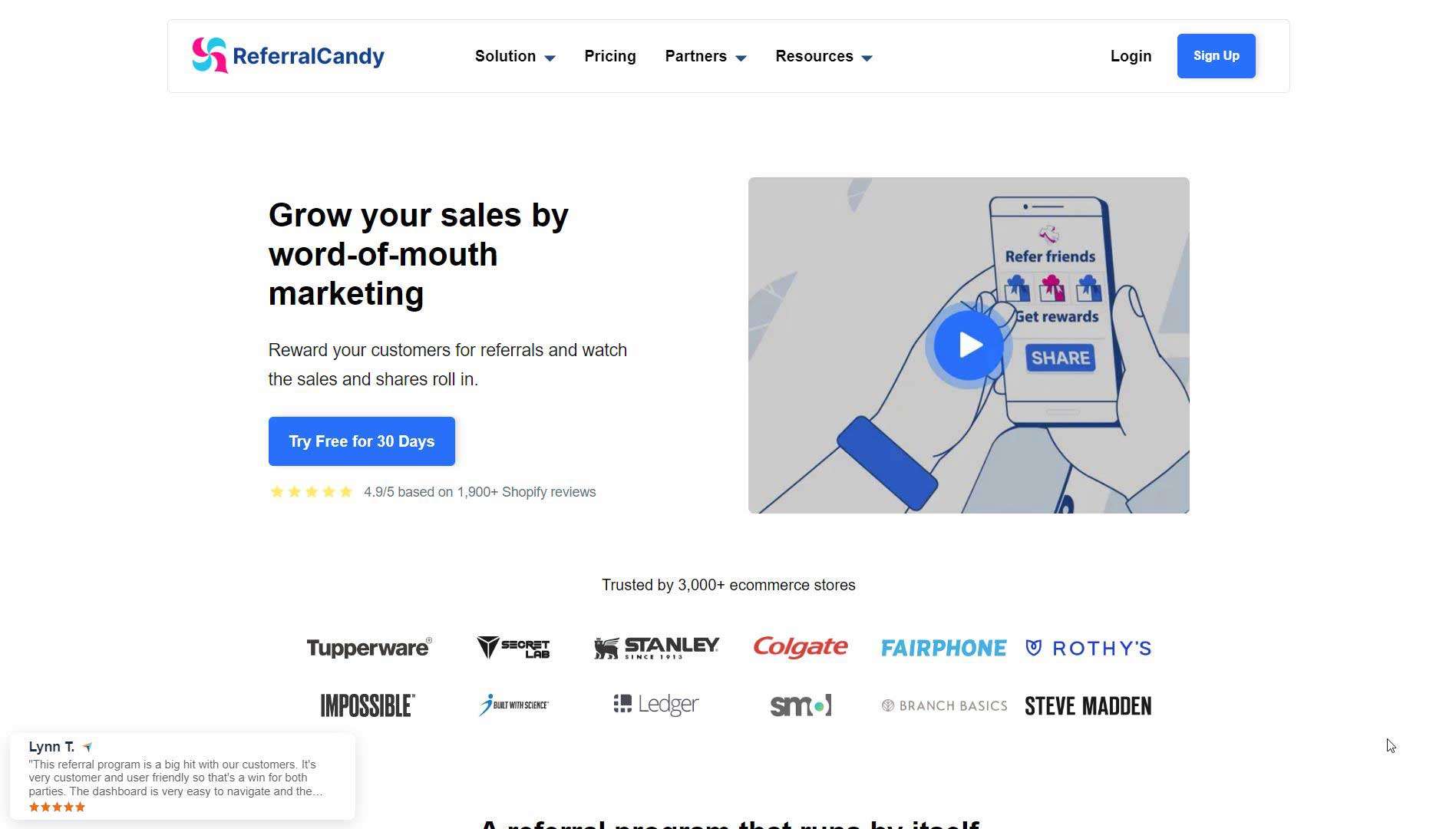
- TUNE provides a centralized platform for managing and optimizing affiliate partnerships. Its robust tracking capabilities, flexible commission structures, and real-time reporting features help businesses gain valuable insights and make data-driven decisions.
Pros include:
- Robust tracking capabilities
- Flexible commission structures
- Real-time reporting features
Cons may include limited customization options and the need for technical expertise.

- Affise is a performance marketing software that offers a comprehensive suite of tools for managing and optimizing affiliate campaigns. Its real-time analytics, automation capabilities, and advanced tracking options make it a top business choice.
Pros include:
- Real-time analytics
- Automation capabilities
- Customizable commission structures
- Advanced tracking options
Cons may include complexity and limited integration options.
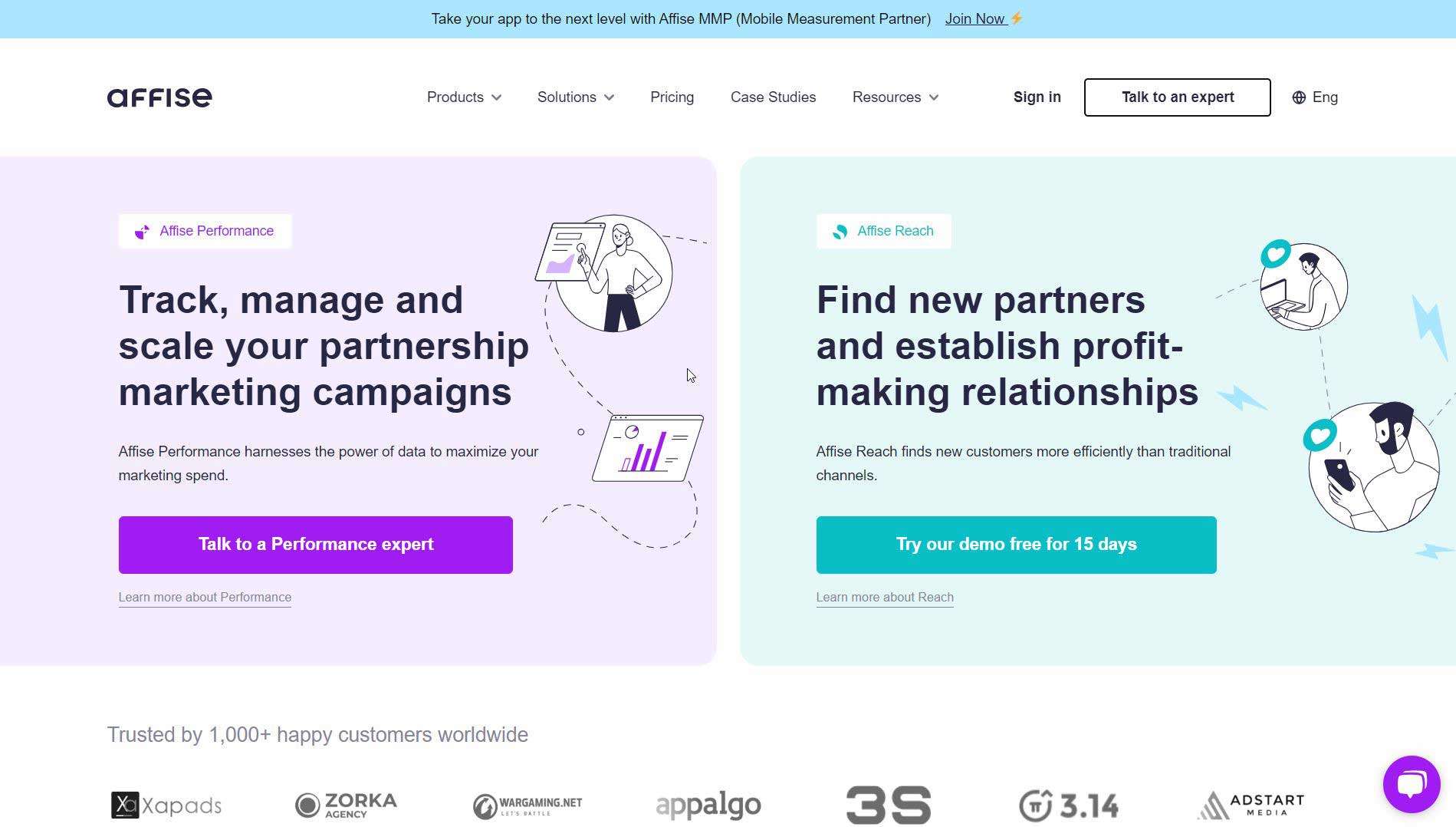
- PartnerStack is an all-in-one affiliate marketing platform that enables brands to manage, track, and grow their partner programs. Its intuitive interface and customizable reward structures make creating and managing effective affiliate marketing campaigns easy.
Pros include:
- Intuitive interface
- Customizable reward structures
- Extensive integrations
Cons may include high costs and limited customization options.

- CJ Affiliate, formerly Commission Junction, is a well-established affiliate marketing network connecting brands with a vast network of publishers. Its advanced tracking capabilities, detailed reporting, and data-driven insights help businesses optimize their marketing strategy, reach new customers, and drive higher conversions.
Pros include:
- Data-driven insights
- Optimization capabilities
- Vast network of publishers
Cons may include high costs and the requirement for advertiser approval.

- Awin is a global affiliate marketing network that connects businesses with publishers worldwide. Its advanced tracking capabilities, real-time reporting, and robust analytics make it a top choice for companies looking to optimize their affiliate marketing efforts.
Pros include:
- Global network of publishers
- Advanced tracking capabilities
- Robust analytics
Cons may include high costs and limited customization options.

- ClickBank is an online platform that allows businesses to promote and sell digital products through affiliate marketing. Its customizable commission structures, real-time tracking, and advanced reporting features make it an ideal choice for companies looking to manage their affiliate campaigns and grow their revenue.
Pros include:
- Real-time tracking
- Customizable commission structures
- Advanced reporting features
- Access to a wide range of digital products
Cons may include limited customization options for specific features and the need for technical expertise.

Choosing the right affiliate marketing software for your business can be a game-changer in optimizing your affiliate campaigns and driving better results. Each of the top 10 affiliate marketing software solutions listed above has pros and cons, so it’s essential to carefully consider your business needs and goals before deciding.
Be sure to choose a software provider offering reliable technical support and resources such as training, documentation, and a knowledge base. This will ensure you have the help you need to make the most of your affiliate marketing software.
Now that we’ve covered the essential factors to consider when selecting affiliate marketing software let’s dive into the top tips for choosing the right one for your business:
Determine Your Needs and Objectives
You should determine your needs and objectives before searching for an affiliate marketing software platform. This will help you narrow your options and choose software that aligns with your business goals. Consider the following questions:
- What type of affiliate program do you want to run?
- What are your performance goals?
- What kind of support and resources do you need?
- What is your budget for affiliate marketing software?
Answering these questions will help you define your requirements and choose software that meets your needs.
Research the Software Providers
Once you have defined your needs and objectives, it’s time to research the available software providers. Look for a list of software providers that offer affiliate marketing software, and narrow it down based on your specific requirements.
Read reviews, testimonials, and case studies to learn about the experiences of other businesses that have used the software. Look for software providers that have a proven track record of success and provide reliable support and resources.
Evaluate the Software’s Features
After researching the software providers, evaluate the features of the affiliate marketing software you are considering. Look for the following features:
- Easy-to-use interface: The software should have an intuitive interface that is easy to navigate.
- Customizable commission structures: The software should allow you to set custom commission rates for your affiliates easily.
- Tracking and reporting: The software should provide real-time tracking and reporting features that allow you to monitor the performance of your affiliate marketing campaigns.
- Integration capabilities: The software should integrate with your existing marketing tools and platforms to streamline your operations.
- Automation capabilities: The software should have automation capabilities that help you save time and improve efficiency.
Evaluate the software’s features against your needs and objectives to ensure they align with your requirements.
Consider the Pricing Model
- Affiliate marketing software providers typically offer pricing plans that vary based on the number of affiliates and the features included. Consider your budget for affiliate marketing software and choose a provider that offers a pricing plan that meets your needs and objectives.
- Be aware of any hidden fees or additional costs, such as setup fees or transaction fees, that may impact the overall cost of the software.
Test the Software
- Before committing to an affiliate marketing software provider, test the software to ensure it meets your requirements. Most software providers offer a free trial or a demo version, allowing you to test the software and evaluate its features.
- During the trial period, use the software to set up an affiliate program, recruit affiliates, and monitor the performance of your campaigns. This will help you understand the software and determine if it fits your business correctly.
Affiliate marketing software is a must-have tool for brands looking to maximize their marketing efforts through independent affiliates. With the right software solution, businesses can expand their reach, lower marketing costs, and create a network effect that drives sales and revenue. When choosing the best affiliate marketing software, companies should consider several factors, such as features, scalability, ease of use, integration capabilities, and reporting functionalities.
It’s important to research available software providers, evaluate their features, and consider the pricing model before committing to a provider. Additionally, businesses should test the software before deciding to ensure it aligns with their needs and objectives. Choosing the right affiliate marketing software is critical to the success of your affiliate marketing campaigns, and selecting the wrong platform can lead to wasted time, money, and resources.
Choosing the right affiliate marketing software is crucial to the success of your affiliate marketing campaigns. Businesses can choose the best software that aligns with their needs and objectives by carefully evaluating the available software providers, considering the features, scalability, ease of use, integration capabilities, and reporting functionalities. With the right platform, businesses can optimize their affiliate marketing strategy, drive better results, and achieve their marketing goals.
For more information, please check this article.
Best Practices Guidebook
 Unified Communications: The Backbone of Modern Digital Growth
Unified Communications: The Backbone of Modern Digital GrowthDownload for FREE
 The Channel Sales Playbook: Skills, Strategy, and Growth
The Channel Sales Playbook: Skills, Strategy, and GrowthDownload for FREE
 Blueprints for Vertical Success Best Practices
Blueprints for Vertical Success Best PracticesDownload for FREE
 The Future of Partner Enablement: From Enablement Gaps to Global Advantage
The Future of Partner Enablement: From Enablement Gaps to Global AdvantageDownload for FREE
 Reimagine Sales Development. Build a Smarter Prospecting Engine
Reimagine Sales Development. Build a Smarter Prospecting EngineDownload for FREE
 The Zero Trust Imperative: Fortifying Enterprise Security Against AI-Driven Threats
The Zero Trust Imperative: Fortifying Enterprise Security Against AI-Driven ThreatsDownload for FREE
 PartnerOps Excellence: The Definitive Guide to Scalable SaaS Ecosystems
PartnerOps Excellence: The Definitive Guide to Scalable SaaS EcosystemsDownload for FREE
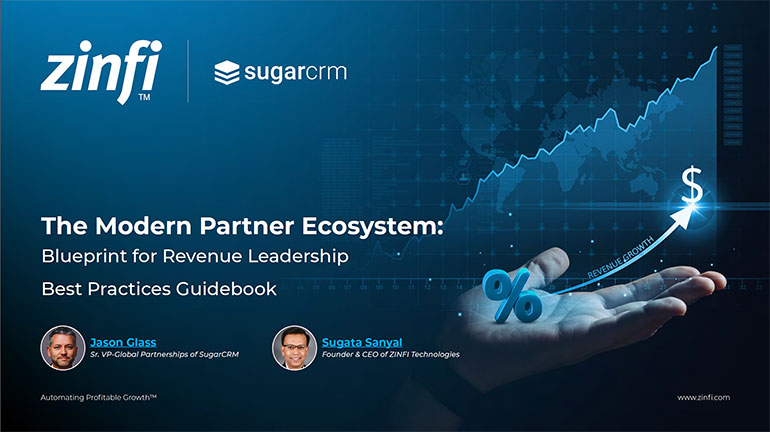 The Modern Partner Ecosystem Best Practices
The Modern Partner Ecosystem Best PracticesDownload for FREE
 Partner Marketing Reimagined: Strategies for Agile, Insight-Led Growth
Partner Marketing Reimagined: Strategies for Agile, Insight-Led GrowthDownload for FREE
 Scaling with PartnerOps Best Pratices
Scaling with PartnerOps Best PraticesDownload for FREE
 Leading with Partner Programs Best Pratices
Leading with Partner Programs Best PraticesDownload for FREE
 The Partner-First Blueprint: Scaling Trust, Intelligence, and Ecosystem Growth
The Partner-First Blueprint: Scaling Trust, Intelligence, and Ecosystem GrowthDownload for FREE
 Unlock Scalable Growth with The Partner Marketing Growth Blueprint
Unlock Scalable Growth with The Partner Marketing Growth BlueprintDownload for FREE
 From TikTok to LinkedIn: Social Selling Across the Generational Divide
From TikTok to LinkedIn: Social Selling Across the Generational DivideDownload for FREE
 Scaling Partner Ecosystems: From Enablement to Intelligence
Scaling Partner Ecosystems: From Enablement to IntelligenceDownload for FREE
 The Ultimate Guide to Partner Marketing Success Best Practices
The Ultimate Guide to Partner Marketing Success Best PracticesDownload for FREE
 How to Start and Scale Partner Ecosystems Best Practices
How to Start and Scale Partner Ecosystems Best PracticesDownload for FREE







